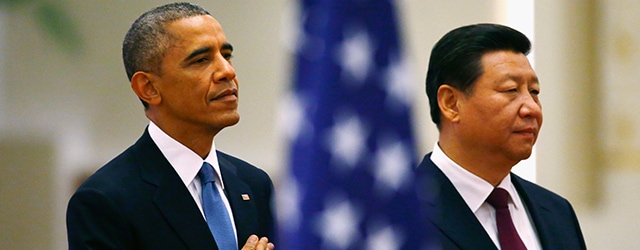US & China | Milestones

“This is a major milestone in the US-China relationship, and it shows what’s possible when we work together on an urgent global challenge.” These were the words of US president Barack Obama at a surprise joint news conference held on November 11 with Chinese leader Xi Jinping in Beijing, introducing a landmark bilateral deal aimed at reducing the greenhouse gas emissions of the world’s top two polluting countries. According to the plan, the United States will emit 26% to 28% less carbon in 2025 than in 2005, nearly twice the previous target, whereas China pledged for the first time to set a date at which it expects its emissions to peak and begin to taper—around 2030.
It was an historic announcement. However, Lance Bennett, professor of political science at the University of Washington in Seattle, says the measures don’t cut deep enough. “Emissions have become for China a pressing health and economic problem and a challenge to the legitimacy of the party, while the United States is faced with drought, threats to coastal zones and economic stagnation. The real question is whether either nation will see a path toward conditions better suited to sustainable futures.”
Ironically, while leading the way ovearseas, Obama might be the one facing the most obstacles at home. With the 114th Congress coming under Republican control, Thomas Lorenzen, a partner in Dorsey & Whitney’s regulatory affairs group, says congressional leaders have stated that they will use all means to stop the Environment Protection Agency’s proposed carbon regulations for new and existing power plants. “One of those means,” says Lorenzen, “will no doubt be additional provisions added to funding bills designed to strip the EPA of funding to finalize, implement or enforce these rules.” Lorenzen believes there is a good chance some of the congressional provisions may pass, but they are almost certain to be vetoed by Obama. “This will put us into yet another shutdown game of chicken: Who will yield first, the president or the Republican-led Congress. How that plays out will determine whether these rules go forward,” says Lorenzen.



